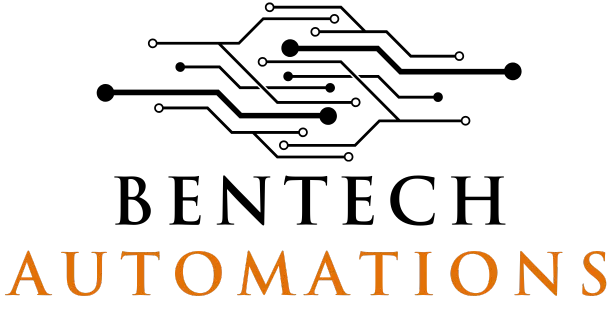Blog

5 Common Myths About Automation Debunked: Separating Fact from Fiction
In today's rapidly evolving technological landscape, automation has become a buzzword across industries. From manufacturing to finance, healthcare to transportation, businesses are increasingly turning to automation to streamline processes, increase efficiency, and reduce costs. However, along with the rise of automation, several myths and misconceptions have emerged, leading to confusion and apprehension about its implementation. In this post, we'll debunk five common myths about automation, shedding light on the reality behind the hype.
Automation Will Replace All Human Jobs
One of the most prevalent myths surrounding automation is the fear that it will lead to widespread unemployment. While it's true that automation can eliminate certain repetitive and mundane tasks, it doesn't necessarily mean that all jobs will be taken over by machines. In reality, automation often complements human labor by freeing up employees to focus on more creative, strategic, and value-added tasks.
For example, in manufacturing, robots may handle routine assembly processes, but human workers are still needed for tasks that require critical thinking, problem-solving, and adaptability. Similarly, in customer service, chatbots can handle basic inquiries, but human agents excel in providing personalized assistance and resolving complex issues.
By dispelling the myth of widespread job displacement, businesses can embrace automation as a tool for enhancing productivity and empowering employees to focus on tasks that leverage their unique skills and expertise.
Automation Is Only Feasible for Large Enterprises
Another common misconception is that automation is exclusively reserved for large corporations with extensive resources and budgets. In reality, automation technologies have become increasingly accessible and affordable, even for small and medium-sized businesses (SMBs).
Thanks to advancements in software, cloud computing, and robotics, SMBs can now leverage automation tools tailored to their specific needs and budget constraints. Whether it's automating accounting processes, managing inventory, or streamlining customer communications, there are solutions available to suit businesses of all sizes.
Moreover, automation can actually level the playing field for SMBs, allowing them to compete more effectively with larger enterprises by enhancing operational efficiency and agility.

Automation Is Too Complex to Implement
Some businesses shy away from automation due to the perception that it requires complex technical expertise and extensive training. While certain automation solutions may indeed be sophisticated, many are designed to be user-friendly and intuitive, requiring minimal technical know-how to implement and operate.
For instance, no-code or low-code automation platforms empower users to create custom workflows and automate repetitive tasks without writing a single line of code. These platforms offer drag-and-drop interfaces and pre-built templates, making automation accessible to employees across various departments, regardless of their technical background.
Furthermore, many automation providers offer comprehensive support and training resources to assist businesses in the implementation process, ensuring a smooth transition and maximizing the benefits of automation.
Automation Leads to Loss of Control and Flexibility
Another myth surrounding automation is the notion that it restricts businesses' control and flexibility over their processes. In reality, automation can provide greater control and visibility by standardizing workflows, enforcing compliance, and enabling real-time monitoring and analytics.
By automating repetitive tasks and eliminating manual errors, businesses can ensure greater accuracy and consistency in their operations. Additionally, automation allows for greater flexibility by enabling rapid adjustments to workflows and processes in response to changing market conditions or business requirements.
For example, in e-commerce, automated inventory management systems can automatically adjust stock levels, reorder products, and synchronize inventory across multiple sales channels, providing retailers with greater agility and responsiveness to customer demand.
Automation Is Only Relevant for Certain Industries
Finally, there's a misconception that automation is only applicable to certain industries or sectors, such as manufacturing or logistics. While automation has indeed revolutionized traditional industries like manufacturing, its potential extends far beyond specific sectors.
In reality, automation can benefit virtually any business or organization across diverse domains, including healthcare, education, finance, and hospitality. Whether it's automating administrative tasks in a medical practice, optimizing supply chain logistics for a retail operation, or personalizing learning experiences in education, automation can drive efficiency, innovation, and competitive advantage across various industries.
By debunking the myth of limited applicability, businesses can explore the diverse opportunities that automation offers to enhance productivity, improve customer experiences, and drive growth.
In conclusion, automation holds immense potential to transform businesses and drive innovation across industries. By dispelling common myths and misconceptions, businesses can embrace automation as a strategic tool for enhancing efficiency, empowering employees, and staying competitive in an increasingly digital world. As automation continues to evolve and mature, businesses that adapt and leverage its capabilities will be best positioned to thrive in the years to come.
Automation has revolutionized various industries by streamlining processes, reducing human error, and increasing efficiency. From manufacturing to software development, automated systems handle repetitive tasks, allowing employees to focus on more complex and creative endeavors. Embracing automation not only enhances productivity but also leads to significant cost savings and innovation.
If you want to learn more about automations, click here.

Facebook
Instagram
Pinterest